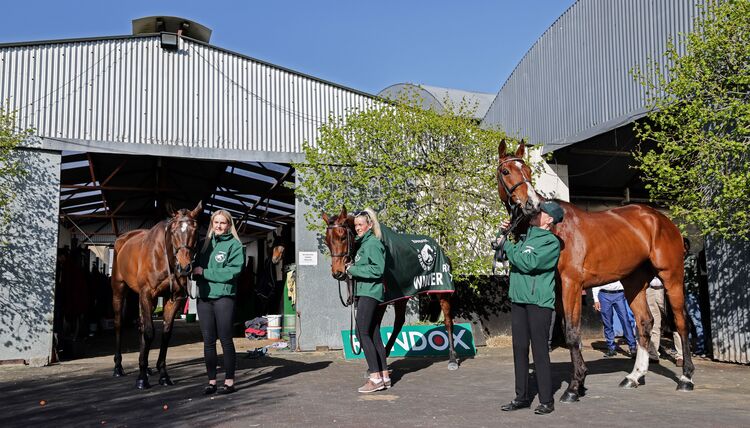Aoife Williamson will direct "Work."
By Peter McDermott
Before Eve, there was Lilith.
Indeed, the latter goes way back. She was the Sumerian Queen of Heaven.
“The Hebrews took the goddess and transformed her into the first wife of Adam,” said actor Aoife Williamson, who has woven the myth into the story of a short film she is about to direct. Lilith, however, refusing to be subservient, insisted on equality.
“When he refused, she left,” said the first-time writer, known for her star turns in 1st Irish Theatre Festival productions in recent years. “Thereafter in Jewish mythology, she was described as a demon.”
The main character in the film “Work” is Lilith, a musician who pays the bills with her other job as an escort, for which she uses the name Eve.
Williamson explains on a video for the project’s Kickstarter campaign, which concludes on this Saturday (see it here), how a close friend’s revelation led her to the subject of sex work and a sympathetic treatment of it.
Beginning next month, a mostly immigrant female crew will shoot “Work” (which they expect to be about 13 minutes) over three days in Covid-challenged New York City. Williamson’s friend Marie O’Connell has come on board as producer. It’s the first collaboration between two women who grew up together in West Cork. They went in different directions after secondary school, but kept in touch over the years. “She was working in film production and I was going to acting school with a focus on theatre,” Williamson said. “It didn't totally feel like we were working in the same industry until it did.”

Producer Marie O'Connell.
They are joined by cinematographer Yessica Curiel Montoya, who is from Mexico, and Nepalese co-producer Paridhi Rana. There is a male and native New Yorker contribution in the form of DMac Burns, who has composed the original music for the film.
The Kickstarter statement describes “Work” as a comedy-drama “that follows Lilith, a musician scrambling to create a song in one day to submit for a job that could sky-rocket her music career.” It turns out also to be a busy day for Eve in her “money job” as an escort.
The Lilith/Eve dichotomy, though, is not a moral one in the writer-director’s perspective.
“Yes, I think Lilith [the goddess] is the more authentically female and I might even have a notion that Eve was invented to make females feel subservient to the almighty male,” Williamson said. “However, I don't agree with the stigmatization of sex work for buyer or seller.”
On the Kickstarter video, Williamson says she realized that “film, for the most part, portrays sex workers as addicts and victims. I know there are horrific stories out there about why and how people get into this profession, but that wasn’t her [her friend’s] experience. So I felt I owed it to her and to countless others like her who choose this work to change the narrative. It may just be a drop in the ocean, but it’s a start.”
A 2016 YouGov poll reported that 50 percent of women in the U.S. are opposed to legalizing sex work, while 30 percent were in favor; 51 percent of men were in favor of lifting the ban and 36 percent felt it should remain illegal. Women are also more likely to view it as morally wrong — 65 percent, whereas only 47 percent of men took that view.
Reporting the YouGov findings, the online magazine Vox asked why did women feel this way? “Is it ‘Mean Girls’–style judgement of promiscuous women? Is it a desire to protect other women from exploitation?”
It added that sex work “is the subject of bitter divides in the feminist community.”
The piece continued, “Moral quandaries aside, the evidence shows that banning sex work is counterproductive. When sex work is illegal and has to operate in the shadows, sex workers are at greater risk for exploitation and abuse.”
It said that the argument that prohibition keeps sex trafficking down is “flawed”; the opposite is the case — it increases it.
The Economist is one publication that has reported on this and policy approaches in different countries, from health, criminal justice and human-rights perspectives and has had explanatory pieces such as “Why decriminalizing sex work is a good idea.”
Williamson, who favors regulation over prohibition, said sex workers “can be pushed out of communities, evicted, denied healthcare, attacked verbally and physically on the streets. The list goes on.”
The Vox piece said, “Interestingly, most Americans don't agree with harsh punishment for sex work or solicitation. Only 20 percent think that either buying or selling sex should be punished with prison. The rest think community service or a small fine would suffice, or aren't sure.
“But that's a far cry from how sex work is punished in the real world, both legally and in less official ways.”
Williamson believes the regulation of the trade, one of the oldest, is a human-rights issue as it involves consenting adults. She said “making Lilith an escort is a way of showing that this is just a job, not so different from a masseuse, an entertainer or anyone providing a service.”
The Kickstarter statement says, “We attempt to address it in this film with humor and with heart. Lilith could be your sister, your barista or your musician friend. She is a normal girl; more than that, she is powerful and courageous, and she deserves every ounce of your respect.”
See also workshortfilm.com and facebook.com/workthefilm.









